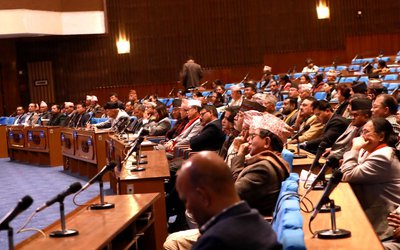More on News


The World Bank today approved a US$65 million credit for the Nepal Higher Education Reforms Project to help address the human resource needs of the country and add to the national knowledge base.
The project intends to support reforms in selected institutions for improving quality, relevance, and efficiency of higher education; and to assist under-privileged students for equitable access.
The project will focus on implementation of reforms in different areas including more effective public funding of higher education institutions, institutionalization of the national accreditation system, greater institutional autonomy, strengthening of the examination system, expansion of new academic programs and research and financial support for under-privileged students.
“Investing in human capital is critical for Nepal,” said Takuya Kamata, the World Bank’s Country Manager for Nepal. “This Project will help support key institutional reforms in the higher education sector allowing graduates – including those from disadvantaged backgrounds - to acquire relevant and higher quality skills to be better able to respond to labor market needs” he said.
The project is part of the National Program for Higher Education Reform and Development (NPHERD). It is expected to benefit over 500,000 current and future students of over 150 public universities and affiliated campuses through different interventions reports the World Bank's press release.
The credit carries a maturity of 38 years including 6 years of grace period.

